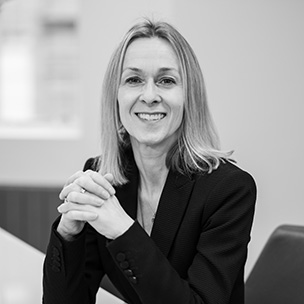How Tech is Solving the Problems of an Ageing Population
Text
In the UK, 18.2% of the population is currently aged 65 years or over, compared to 15.9% in 2017 and a predicted 20.7% by 2027. This significant demographic shift is affecting developed and developing countries alike. While this is in many ways something to celebrate, as people are living longer due to improved healthcare, it brings associated problems which are likely to worsen over time:
- An ageing population puts an increased burden on healthcare systems, with fewer young people available to work in the sector.
- A higher percentage of the country’s GDP will need to be spent on elder care, with fewer young people in the working population to support this through taxation.
Accordingly, society is turning to technology to solve this, creating a robust and successful healthtech sector which will make treatment and care less labour-intensive and more efficient.
‘As Western healthcare systems become increasingly strained by the proliferation of lifestyle diseases, an ageing population and higher patient expectations, they are compelled to incorporate technology into their structure to improve accuracy, systems productivity and cost efficiency.’ Hampleton Healthtech M&A Market Report 1H 2019 Link
Predicting the future
Big data is driving a shift from reactive healthcare – treating people when they are sick – towards proactive healthcare – reaching out to people before they need help and encouraging them to monitor their own health.
Once patients’ medical records are digitised, they can be shared across medical departments, collated and analysed with machine learning to recognise patterns, inconsistencies or red flags which a human might miss. Doctors can then use this data to predict when people will require medical assistance and thus begin treatment earlier – an approach which was recently trialled by the Georgia Institute of Technology to combat heart disease in the US.
Patient monitoring
The rise of the Internet of Things (IoT) has considerably benefited the healthcare industry, particularly in the realm of senior care. Pioneers of this include American company Blue Willow Systems – recently acquired by Dutch health and technology giant Philips. Blue Willow’s senior living facility SaaS and sensor technology enables real-time location of residents and staff in senior homes, even allowing staff to schedule personalised wander boundaries for high-risk patients. Moreover, its wearables help detect falls and automatically send alerts to staff the moment an incident occurs.
However, wearable devices can also carry out routine medical checks that patients of any age would usually have to consult a doctor or nurse for – for instance, heart rate and blood pressure monitoring, or glucose monitoring for diabetic patients. If complications arise, the wearable monitor can alert a medical professional and the patient’s family.
Treating elderly patients at home
Virtual care allows patients to speak to doctors over the phone or using video, thus easing the burden on medical practices and their staff. From the patient’s perspective, virtual care saves older patients having to travel for treatment, particularly for those living in remote or deprived areas with poor transport links. It also allows them to convalesce at home rather than in hospital, while remaining connected to medical staff. Furthermore, technology can also emulate the actions of a carer in the home: for instance, smart speakers can be programmed to remind a patient to take their medication.
Virtual care and self-service technology is proving increasingly popular with healthcare providers, medical practices and individuals. American companies specialising in this sector generated more than $13 billion in revenue in 2018.
Improved wellbeing for the elderly
Technology can be used to make an average day for an elderly person easier and more enjoyable. Social media technology and video communication apps such as Skype and FaceTime can help them stay in touch with their family, friends and wider community. Elderly people can also use technology to carry out automated actions as their mobility and other faculties decline. For instance, smart speakers can respond to a voice command to turn off the lights.
These advances ensure that older people can lead a more dignified life in their own home, without saturating social and medical care services.
‘Patient-oriented self-service tech such as health-monitoring software, drug-tracking apps, or remote consultation interfaces, is garnering interest from vertical healthcare buyers.’ Hampleton Healthtech M&A Market Report 1H 2019, Link
Defusing the time bomb
While problems generated by an ageing population pose many questions, technology is working to provide answers.
The Western world will not be alone in facing an ageing population. China faces a significant demographic problem owing to the size and shifts in age profile within its population – as a result of the ‘one child policy’ in place between 1979 and 2015. Unsurprisingly, China has made a huge investment in healthtech with the aim of confronting this problem head-on. If China can use its technological facilities to achieve improvements for the elderly and sick, the world will thank them.
Here are some companies we’re keeping our eye on as potential disruptors in Healthtech arena:
Walk With Path
A health-tech company focused on assistive solutions to prevent falls for the elderly and people with Parkinson's, multiple sclerosis, neuropathy or stroke.
Blue Willow Systems
Using next-generation Wander Management, Blue Willow provides real-time location tracking allowing you to see where residents and staff are at any moment.
https://www.bluewillowsystems.com/
Noona Healthcare
Smart cloud-based mobile service designed to capture patient-reported outcomes in oncology.


